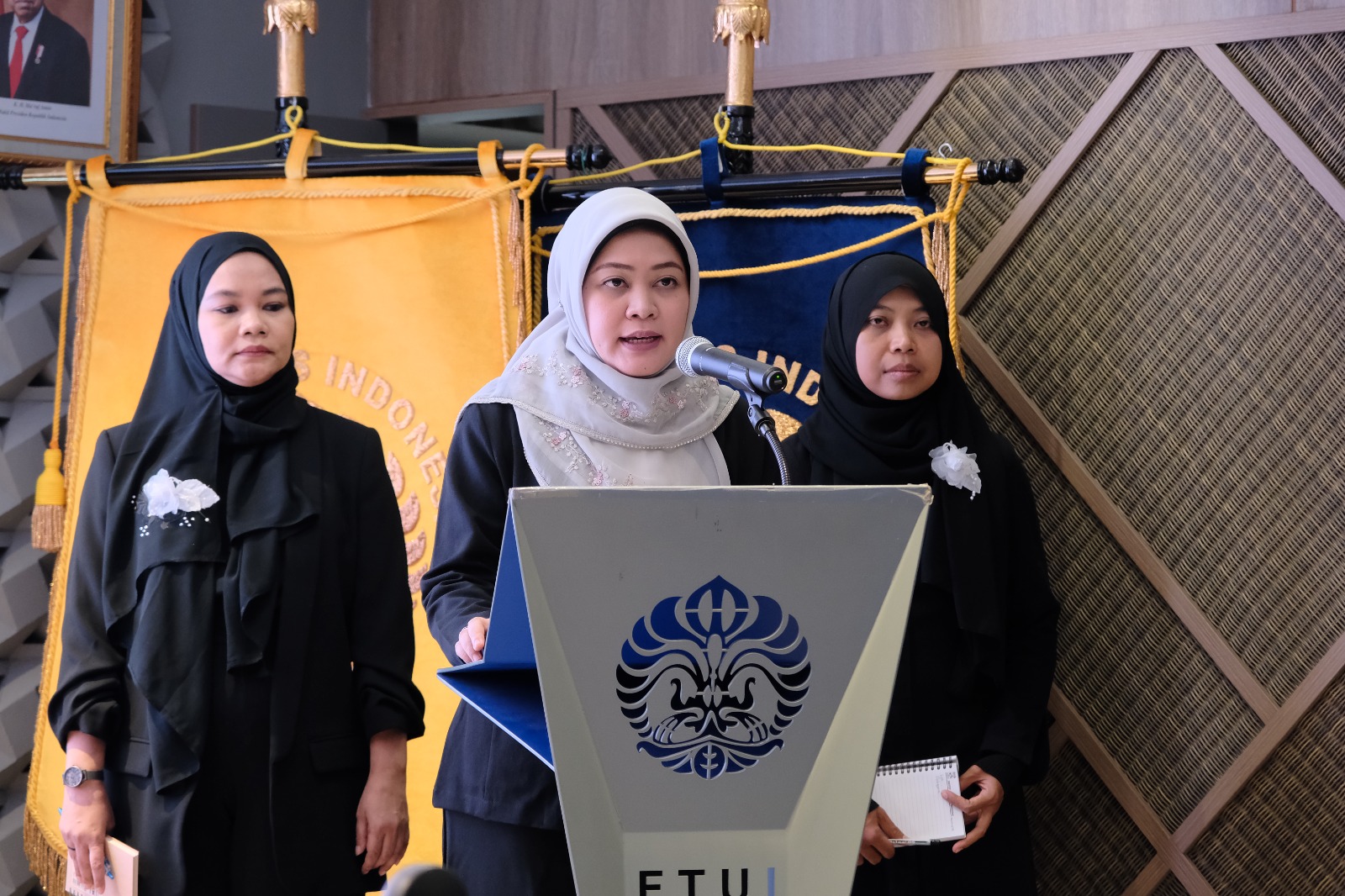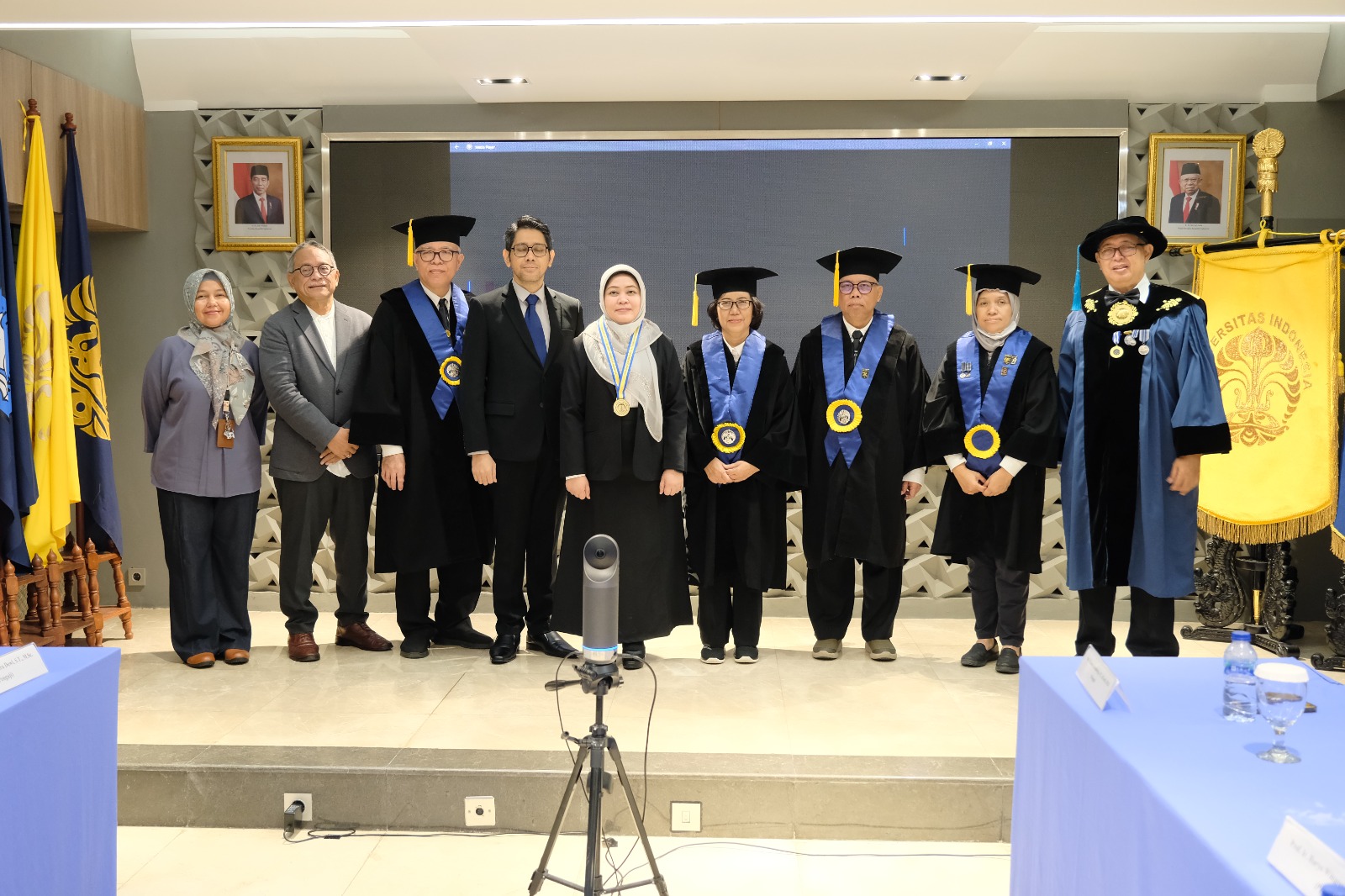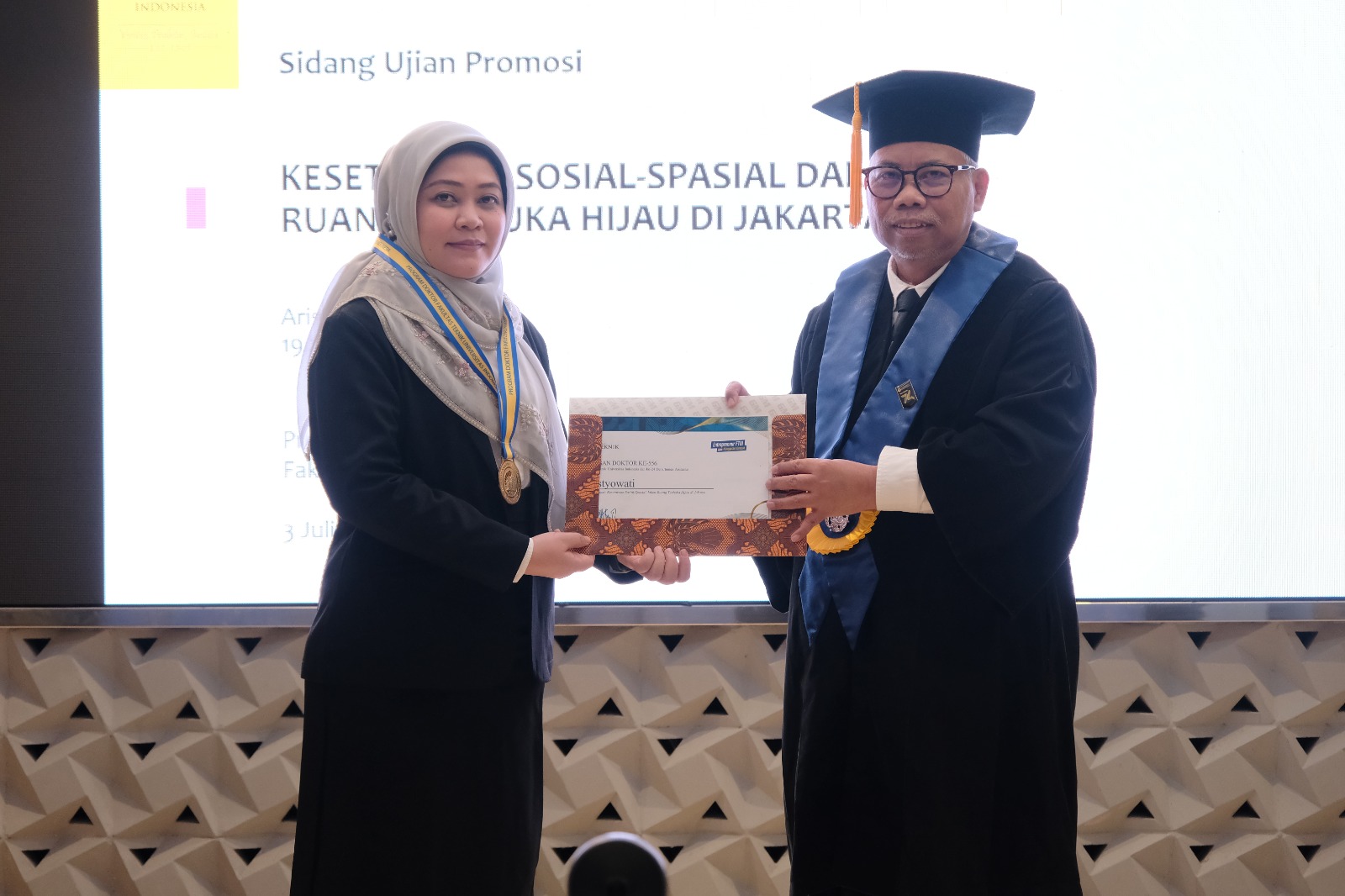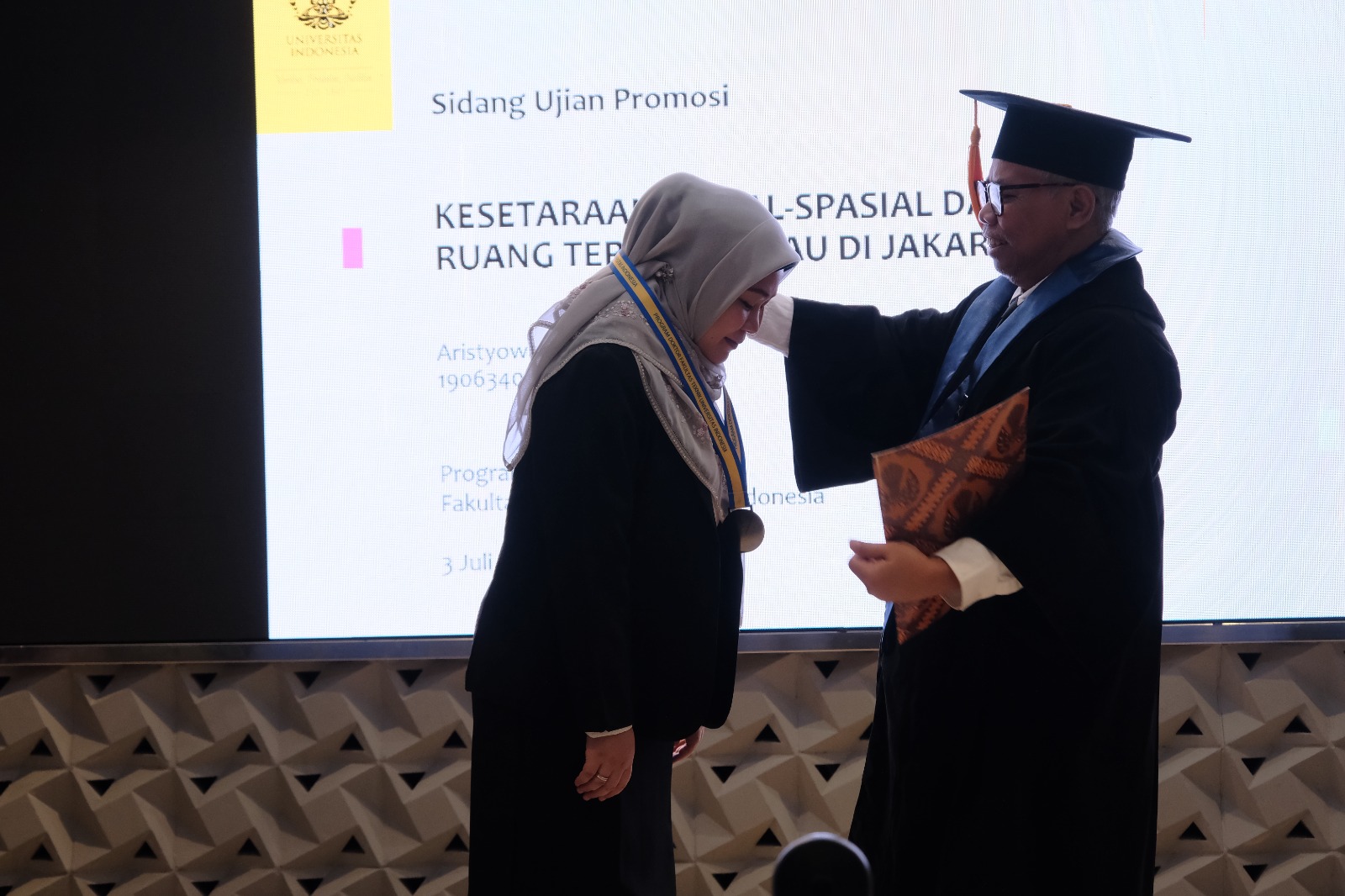Are the planning and utilization practices of Green Open Spaces (RTH) in Jakarta spatially inclusive of residents’ needs? This is the question addressed in the research of Aristyowati, a Doctor from the Department of Architecture at the Faculty of Engineering, Universitas Indonesia (FTUI). Her dissertation, titled “Social-Spatial Equality in Green Open Spaces in Jakarta,” earned her a Cumlaude distinction with a GPA of 3.94. Aristyowati is the 24th doctoral graduate from the Department of Architecture and the 556th from FTUI.
Aristyowati’s research aims to investigate the social-spatial issues of RTH utilization in Jakarta from the perspectives of visitors and street vendors (PKL), as both are vital users of public spaces. Through a spatial proximity approach, this research encourages conservative RTH policies by integrating local identity and reducing public space disparities to some extent.
“RTH planning in Indonesia must not only consider ideal standards based on population size and area but also address the need for equality in RTH for local community groups, such as providing space for MSMEs. Considering that both groups (visitors and street vendors) have diverse yet interdependent needs on the vitality of RTH, their equal rights to use and benefit from these spaces must be recognized and maintained,” stated Aristyowati.
From her research, Aristyowati concluded that socio-spatial inequality among different types of RTH users can be observed through their motives or reasons for using RTH and their places of origin. The factor of residential proximity to RTH locations enriches spatial analysis, emphasizing future RTH planning priorities based on who will use them and where they come from.
Planning and developing RTH should not only focus on quantitative aspects, such as land availability and accessibility. Maintenance is essential to preserve the quality of existing RTH so it continues to meet the needs of all city residents. The inclusive nature of RTH is a key indicator to consider in achieving spatial justice for all parties.
FTUI Dean Prof. Dr. Ir. Heri Hermansyah, S.T., M.Eng., IPU, stated, “This research offers opportunities for urban planners to collaborate with other disciplines, such as sociology, ecology, and public health. Thus, spatial practices that respond to the local context in utilizing RTH as fair and beneficial spaces for city residents can be more broadly embraced.”
The Doctoral Promotion session was led by Chairman Prof. Ir. Mahmud Sudibandriyo, M.Sc., Ph.D., with Promoter Prof. Ir. Evawani Ellisa, M.Eng., Ph.D., and Co-Promoter Ahmad Gamal, S.Ars, M.Si., M.U.P., Ph.D. The examination committee consisted of Prof. Ir. Haryo Winarso, M.Eng., Ph.D., Prof. Paramita Atmodiwirjo, S.T., M.Arch., Ph.D., Prof. Ir. Antony Sihombing, MPD., Ph.D., Dr. Ir. Achmad Hery Fuad, M.Eng., and Dr.-Ing. Ova Candra Dewi, S.T., M.Sc.
***
Public Communications Office
Faculty of Engineering, Universitas Indonesia







